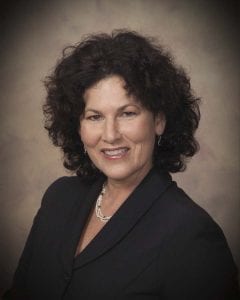Three bills currently in the state Senate address sex-ed in Washington’s public schools
Heads up parents. The state of Washington is about to decide that it knows how to parent your children better than you do.

Senate Bill 5395 removes control from local school boards and the parents who elect them, to make sex-ed mandatory throughout the state starting in kindergarten. This is not your basic birds and bees stuff. This is teaching 9- and 10-year-old children about oral and anal sex.
It’s curricula that tells children who are below the age of consent to “Choose activities with little to no risk like oral sex;” directs 3rd-4th graders to question their gender; tells students that doctors “assign” a sex to a baby; refers to women and girls as “people with a uterus and ovaries;” and suggests the withdrawal method because “it’s free and always available.” The fact sheet doesn’t mention the 22 percent failure rate. They also repeatedly tell your children that they can get free birth control, STD testing, and abortions without your consent.
Senate Bill 5689 requires each school district to adopt or amend a transgender student policy and procedure. All students deserve to be protected and bullying should not be tolerated for any reason, but schools already have bullying policies in place. Why is there a need to single out one very small segment of the student population for special treatment and what will it mean for other students? What constitutes harassment? Will there be punishment for using the “wrong” pronouns? What if a girl complains about having boys in the locker room or in sports competitions? What about parents who refuse to let their daughter be assigned to a hotel room with a boy on an overnight school trip?
This bill also allows teachers to share unapproved materials regarding sexual orientation and gender identity with students, without being negatively impacted, as long as they are “age appropriate and connected to the teacher’s content area.” We’ve seen their idea of age-appropriate.
Senate Bill 5082 says social emotional learning (SEL) “will help students build awareness and skills in managing emotions, setting goals, establishing relationships, and making responsible decisions that support success in school and life.” It sets up a committee to establish standards and consider systems for collecting data about social emotional learning and monitoring implementation efforts.
Setting standards means there will be assessments. What gives the school the right to scrutinize a child’s personal thoughts and feelings for data? And to make judgements about them?
Talking about SEL, Washington Parents Involved in Education’s webpage page says, “In an FRC Speaker Series event, Senior Contributor to The Federalist Stella Morabito revealed how SEL is presented with a veneer of building kids’ self-confidence, but in reality is a form of groupthink through the regulation of personal interactions and relationships. The SEL model is taught in a way that requires total compliance with its methods, including the monitoring and tracking of students’ emotions. As Morabito pointed out, those pushing the SEL agenda have fallen into the trap of a collectivist utopianism that believes that if only the government were able to teach everyone the “right way” of thinking, everyone will be equally happy.” With fewer than 60 percent of 3rd–8th graders meeting the standards in English and Math, maybe the state’s schools should focus on academics and let parents, parent.
SB 5395 was passed in the Senate and had a public hearing in the House Committee on Education March 12. SB5689 and SB5082 were passed in the Senate and are scheduled for executive session in the House Committee on Education, March 21.
Write or call your legislators or call the Legislative hotline 1 (800) 562-6000.
Julia Dawn Seaver
Vancouver




